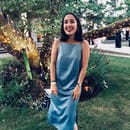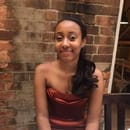I received this book as an act of truce. Although my mother and I, both self-identified feminists, mostly agree on all things female empowerment, for years we have had a strict no-man’s-land in our discussions: the burqa ban in various Western societies.
It all began with my mom taking me to Waterstones and giving me this book, after a dance show. Knowing me the way she does, she knew this book was going to start a journey of listening and understanding.
I, in no way, claim to be an expert on the lives and experiences of Muslim women – that’s the very reason I chose to read this book. It’s Not About the Burqa is a collection of essays written by British-Muslim women with different racial and career backgrounds, compiled by the editor, Mariam Khan. They touch on various topics such as feminism, sex, mental health, and queer sexuality.
A sense of exclusion from communities that women are deemed to be assigned to or would seek to belong to seems to be constantly present in this book. Whether that be Islam religious spaces, the LGBTQ+ community in the UK, or the Western-centred feminist conversation.
They unanimously voice the need for such spaces to move away from the assumption of an individual as the “default” and towards embracing a more inclusive community and stop considering them as deviations from the norm.
Another big issue they voice is the lack of or the misunderstanding in Western societies of Islam, believing that this is what leads to segregation and mistrust toward the Islamic community. They offer a strong account of Islam which regards women with respect and admiration; arguing that is the misinterpretation and flawed reading of the Quran which has led to their lower societal position. By doing so, they draw a stark line between religion and culture, remaining fiercely loyal to the former but passionately critical of the latter. I believe it extremely important to clarify these distinctions to an audience unacquainted with their respective scopes.
As Mona Eltahawy, one of the contributors explains it beautifully when she explains in the book that Muslim women are caught between a rock and a hard place. The former represents Islamophobic and racist right-wing discourse that seeks to demonize their religion and culture, and the latter describes their Muslim communities as eager to defend Muslim men and silencing Muslim women’s resistance of misogyny. Caught in the middle, Muslim women are accused of giving ammunition to either side in their feminist activism.
This, to me, is why this book is particularly important: hearing their voices and their perspectives, loud and unfiltered. This is the only way Muslim women can be part of this narrative by being removed from this compromising position and into one of power and influence over the discourse surrounding their gender, faith, and culture.
By tapping into this source, we together can learn, enrich and rectify the conversation.
Regarding feminism, Mariam Khan herself emphasises for intersectionality in the conceptualising feminism. Intersectionality is “the interconnected nature of social categorisations such as race, class, and gender as they apply to a given individual or group, regarded as creating overlapping and interdependent systems of discrimination or disadvantage”(Oxford Dictionary). In much of Western feminist narrative, intersectionality is seen as only relevant to those who are “different” allowing for a very separatist discourse, inherently overlooking the privilege that comes with whiteness, and how much privilege impacts women’s patriarchal structures experience. As Mariam Khan highlights in the book women should be forced to pick between and she refuses to set any part of her complex identity aside.
Only when we come to understand that all individuals are situated in a complex junction of identities, such that we are all more than the sum of separate boxes, will the conversation become truly inclusive and equally balanced on all sides, giving everyone a legitimate voice.



